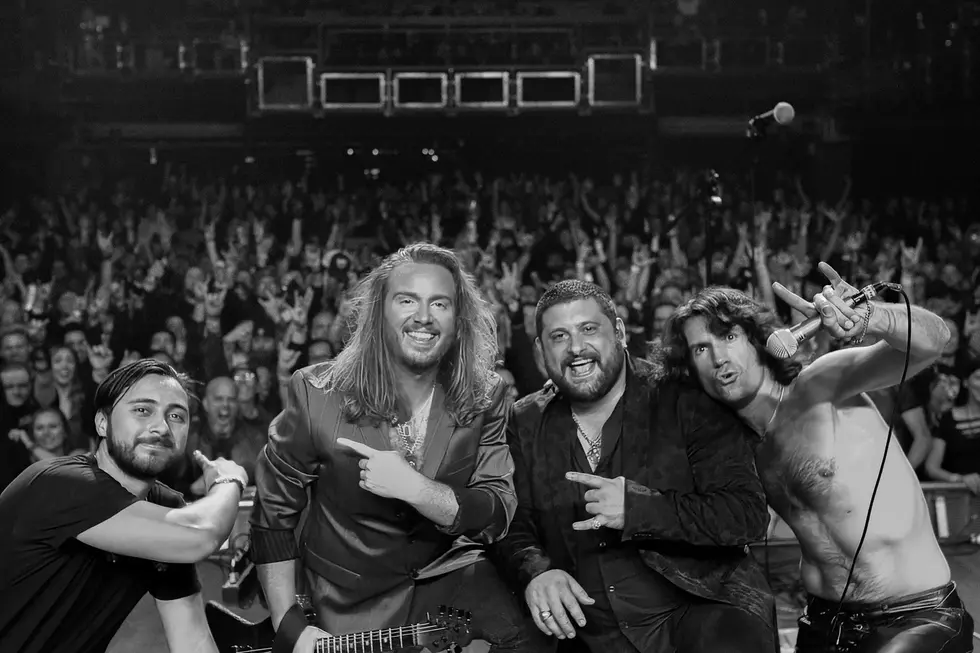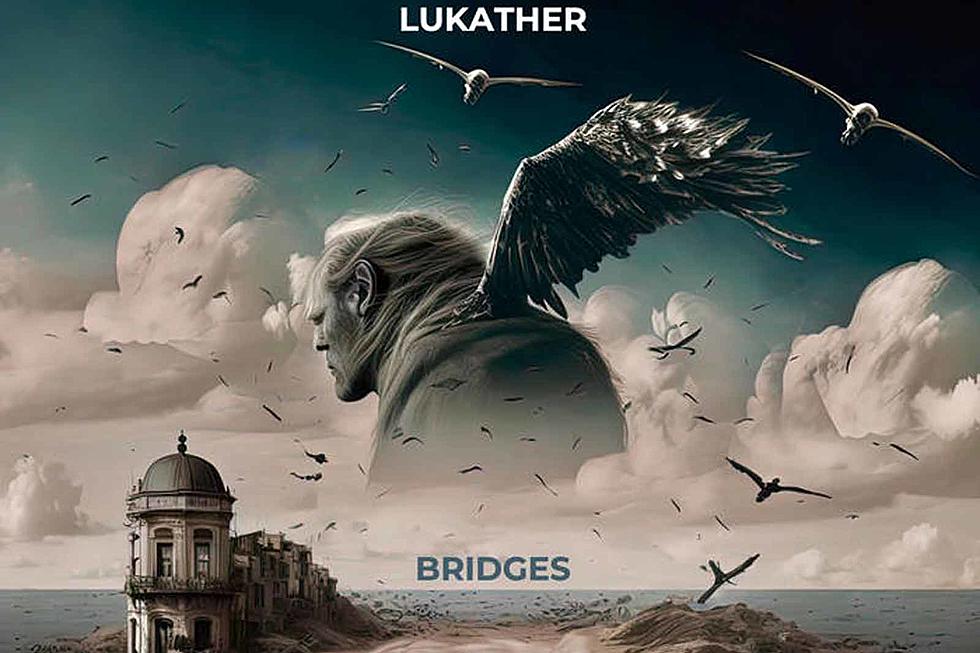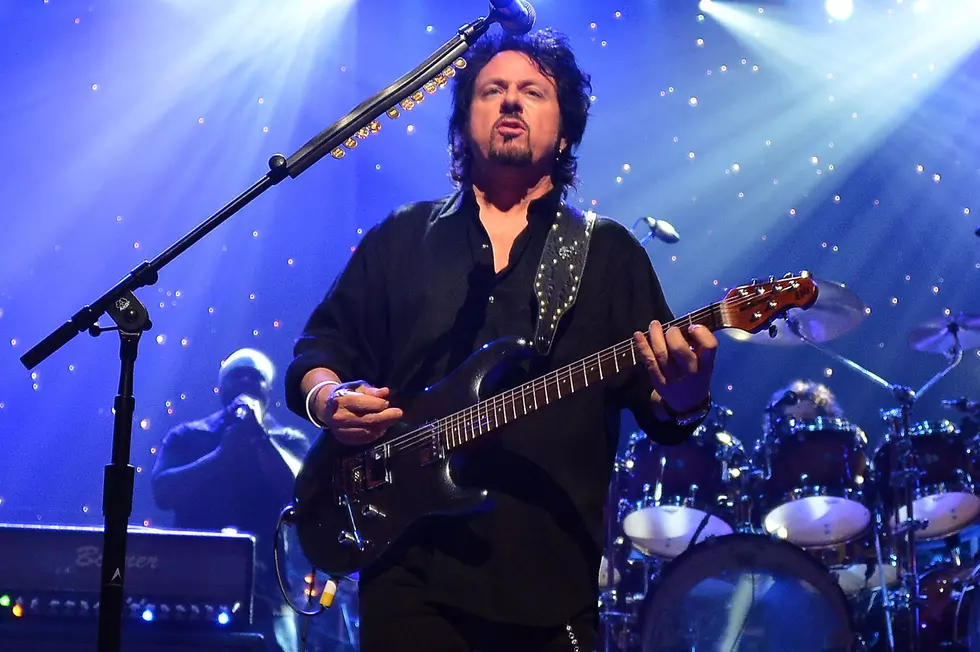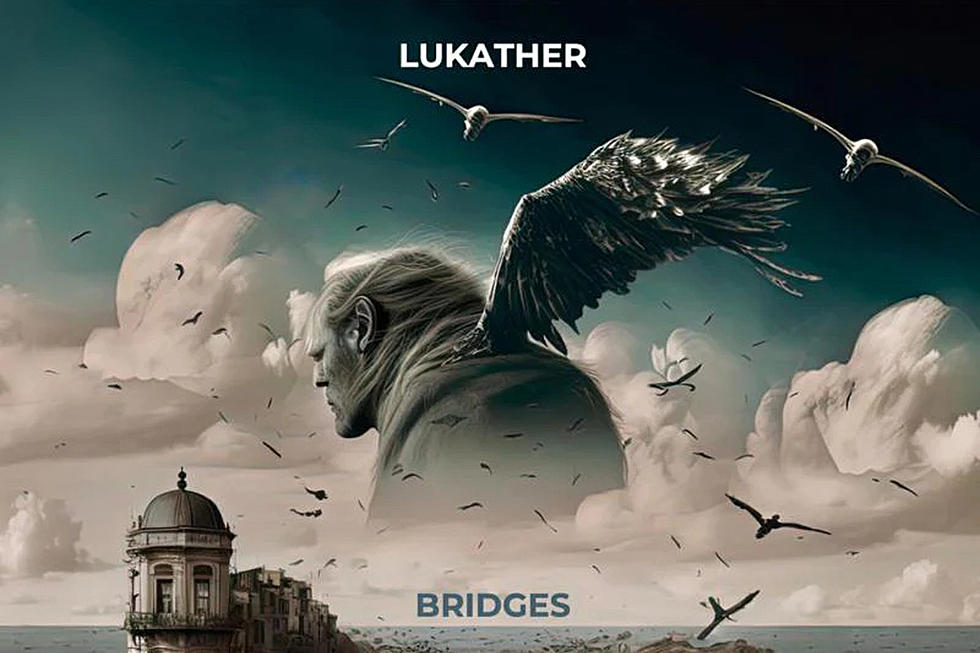
Toto’s Steve Lukather and Joseph Williams Share the Story of ‘Toto XIV': Exclusive Interview
At the peak of the band's popularity, critics derided Toto as a faceless "corporate rock" band, but underneath the complex arrangements that fueled their immaculately produced hits, the group's music has always been the byproduct of a brotherly bond. That bond is both literal, in the case of the Porcaro brothers (drummer Jeff, bassist Mike, and keyboardist Steve) who've anchored the lineup over the years, and figurative, in terms of the lifelong friendships that have tied guitarist Steve Lukather and keyboard player David Paich to their bandmates for decades.
It's only fitting, then, that after the band split in 2008, it was brotherhood that brought them back together two years later — first for a tour, organized to help Mike Porcaro's family defray the mounting medical expenses incurred by his ALS diagnosis, then for a new (and possibly final) studio album. That new LP, Toto XIV, brings the band full circle in more ways than one: Joseph Williams, another lifelong friend, is back on lead vocals for his first Toto studio effort since 1987's The Seventh One, and the record also boasts the return of original bassist David Hungate, who departed after 1982's Toto IV.
And while the new album was written and recorded under the looming shadow of Mike Porcaro's worsening condition (he sadly passed away on March 15), Toto XIV isn't a dark record. The band members have said they view it as an indirect sequel to Toto IV or The Seventh One, and that's an appropriate way to describe a set of songs that preserve the hallmarks of Toto's signature sound without leaving the group sounding stuck in the past. If this is really their last album, as Lukather and Paich have hinted, they've fulfilled their ambition of proving, as Lukather said, "that the album is not dead and that older guys can write some fresh music and haven’t run out of ideas."
Ultimate Classic Rock spoke with Lukather and Williams for a pair of exclusive interviews delving into the story behind Toto XIV, from the illness that sparked the band's reunion to the threatened lawsuit that urged them back into the studio — and the creative pride, not to mention sense of responsibility to their fans, that drove them to deliver a record that stands shoulder-to-shoulder with their best-known work.
"We fought it for a second," admits Lukather when recalling the discovery that they were contracted to provide another studio album, but when the band's lawyers suggested that some new music might be a good way to help Mike Porcaro's bottom line while freeing themselves from their obligation to the label, he says the idea of a real Toto LP started to take shape: "That was the logical thing to go, 'You know what? You’re right. But if we’re going to do this, we’ve got to do a good one. We can’t just throw something together to fulfill the contractual obligation.' Since it’s been 10 years since we made any new music, we owed it to the people that supported us."
It had been even longer since they'd made an album with Williams at the forefront. After taking over for the band's second lead singer, Fergie Frederiksen, Williams led Toto through 1986's Fahrenheit and The Seventh One the following year, but personal struggles overwhelmed his ability to perform during a tour for the latter album. He'd long since settled those issues when the opportunity to rejoin the band arose in 2010, and had established himself as a film and television composer while releasing the occasional solo effort. The prospect of settling unfinished business by recording a new studio album with the band was also a tantalizing prospect.
"You have no idea," Williams tells UCR. "I just lit up when I heard there was just the possibility of doing another record. And then I think when it became official, Luke said, 'Hey, me, you and Dave are gonna write this album.' I think that's what I heard. That lit me up. Got my juices flowing. I went straightaway and wrote 'Fortune,' I think, that day. Just to get ready for it and hold on to it and then, when the time was right, shove it down their throats. But it ended up being the first thing we cut. This was my chance to do The Eighth One. That's really the way it felt. It was hard to hold me down. I had a bunch of songs, and I was coming up with ideas every five minutes. They had to chill me out a little bit."
Lukather praises that energy. "Joseph was a real key ingredient. I mean, he really wanted to come to this and he wanted to prove something to himself. We sort of all did. But he brought this fresh energy to it. He was very excited from day one about doing an album," he agrees. "Joseph’s a natural musician and a producer and he’s a songwriter. He brought so much to the party, man. I’m so proud of him, because you know, he gets another shot at it to. This is really kind of Joe’s record, it’s like, 'He’s back. Look at this guy.' He didn’t burn his voice out; he’s still got it."
While Williams' official return as Toto's lead singer didn't take place until the 2010 reunion, he'd been involved with the band to some extent for years before that, joining them for a 20th anniversary tour in 1997 and contributing vocals and co-writing credits to various tracks along the way. But as familiar as the group is for him — as he points out, he and Lukather have been friends since before Toto even existed — Toto XIV still added new wrinkles to the creative process.
"I had never really sat down in the old days and had written songs with Luke in the room. So that was new," says Williams. "He and I and Dave sat down to write the opening track to the record and it was one of those things — it came out in that one session, one sitting, and then we polished it up over the course of the month that followed. I had never written with Luke that way, so that was a change. That was great fun."
Lukather adds, "Our most successful records were the ones when we were scared to death that we were going to get dropped from the label. This time, we said no rules. We’re not trying to write the hit single and we’re not trying to do anything with it. We’re just going to make music that we like, harkening back to our love of early ‘70s prog rock like Yes, Genesis, Pink Floyd, Tull, you know, those kind of influences. Steely Dan, Beatles — the stuff that we grew up loving — and then the best version of what we did."
That took a lot of heavy lifting on the parts of the band members, especially given that at this point, they'd all become more or less accustomed to being able to call the shots in their respective solo careers. Joking that the process is like the musical equivalent of "five bulls and one cow to f---," Lukather admits, "We didn’t always agree. But some of that creative tension makes for better music. If you look back at all of the classic bands that we’ve all loved, there’s always a little tension in the room. ... Sometimes in the room, you know, we disagree on how things should sound, and what’s good and what’s not good. There were parts that I played that I loved and Dave hated, and vice versa."
The deciding vote sometimes needed to be cast by producer C.J. Vanston, who Lukather credits with being "almost a referee" as well as exactly the kind of trained, efficient musician who's needed once Toto sits down to play. "He was the guy that put it all together. I don’t think the record could have been done without him," notes Lukather. "The guy is a great musician and he’s a great keyboard player and he’s a great songwriter and he’s a great engineer, and he gets what we’re trying to do. He wanted to make it a classic record, because he was a fan when he was a kid. He was a huge asset to this record. Ask anybody."
Ultimately, Lukather downplays the studio tension he references, saying that "at the end of the day we'd always laugh," but it still might have been enough to derail the record if not for the fact that, as Williams puts it, the reunion "wasn't really a business opportunity for us or for the band." Underneath it all, they were together again because of those old friendships – that brotherly love.
"We're all childhood friends. We played together, hung out together, were naughty together. And that's what's rare," says Williams. "What's rarer still is that when guys like that put a band together and hang in there for 40 years. Usually, it pretty much becomes a routine that you take separate cars to the gig, you don't talk to each other — a la the Eagles or some of the other stories you've heard. It's not the case with these guys.
"We've had our arguments and stuff, and certainly working on the album was difficult with all the personalities, as you can imagine," he continues. "But when we get out on stage, or even just when we're hanging out personally, all that stuff just goes away. I mean, we can be in the depths of a huge argument backstage, but when we walk out, everyone starts doing their thing and playing. Everybody starts smiling and lighting up like we're kids again, and as soon as the show is over, we're laughing and joking and getting on the bus. You know, 40 years of that, it's strange."
That bond also lured back Hungate, who was one of several bassists who subbed in for the ailing Porcaro on Toto XIV. "He hadn’t been back in the band in 33 years," notes Lukather, saying that touring with Hungate back in the group will be "like going back to the hometown, except in a positive way, not a negative way. ... All of a sudden we’re sitting in the room with the history there between us all. It’s a long, long history, and it was like no time had passed, except we’re just older and wiser. But the humor and the memories — and his playing is incredible. It’s great."
While Porcaro's absence led to Hungate's return, as well as Toto XIV guest spots from incredible bassists such as Tal Wilkenfield, Lee Sklar and Tim Lefebvre, the knowledge of his declining health — and the lingering feeling of loss left in the wake of original Toto drummer Jeff Porcaro's 1992 passing — added a somber tone to the proceedings. "That’s tragic and sad," sighs Lukather. "The fact that two brothers from the same family – it’s just not right. It’s really just not right. What are the odds of that? It’s hard to describe. So, those guys were sitting in the room with us every day anyway. We’d always go, 'What would Jeff think of this?' or 'What would Mikey think of this?' You know, Mikey was the catalyst in bringing us back together again, so in many ways, this is his record."
After pouring so much of themselves into Toto XIV, the prospect of attempting a follow-up seems faintly ridiculous to Williams and Lukather.
"I'll speak for myself," says Williams, laughing. "At my age, one thing at a time! When I was a younger guy, I tried to jump ahead a lot and I was always disappointed. Look, I think the answer to the question is that there is a huge future now for the group again. What that looks like, and how it will unfold, we will see. Right now, we're all thrilled that the album is done and we pulled it off the way we wanted to – and the next step right now is to go out and play it."
Lukather is more to the point. "That’s like asking a woman after she gave birth, 'Are you ready to have another one?' No," he says, laughing. "You know, who knows. At this point, we got through this one and if this is the last album that we make, I think we made a really great musical statement. I’d be really satisfied with that being a bookend to it. ... I’m not saying that we won’t record together again, but a 10-month process of sitting in a room doing this, I’m not sure who would pay us enough to do that. This is an 11-song album that we worked really hard on. I’m not sure if that configuration, in five years' time, if people will be interested in that again. We gave it our all. Ask me in five years."
That said, Williams stresses, "I'm game. I'm open for anything. I'm just taking it one thing at a time. ... It's great, and my hope is that what people are seeing in this version of the band is that brotherhood. I hope what they're seeing is that we're digging each other and loving what we do."
What longtime Toto fans are left with is an album that — if it does end up being the band's full-length swan song — finds the members of Toto working at the peak of their respective abilities, and should leave listeners wanting more after the final notes fade. Toto XIV ultimately stands as a testament to an effort that Williams describes by saying, "We really dove into it. We did it like our lives depended on it."
"We spent 10 months of our lives screaming at each other, laughing at each other, pushing each other and reading about the news and writing about s-- that bothered us about life," sums up Lukather. "It’s not writing songs about going to the club and picking up girls and fast cars. We’re older guys now. We’ve lived lives and been through greatness and s-- and horrors and death and divorce, addictions, whatever. We’ve all been through it all. Now we’re looking at life from a different point of view, and I thought we made a pretty good record. There’s some pretty cool stuff on it, if you like our music. If you don’t," he laughs, "Well, what can I say?"
See Toto and Other Rockers in the Top 100 Albums of the '80s
Rock and Roll Hall of Fame's Worst Snubs
More From Ultimate Classic Rock









